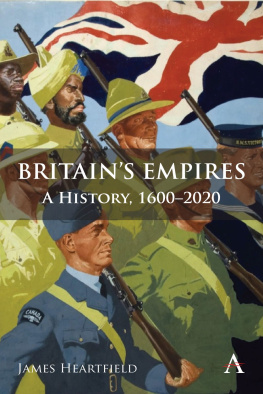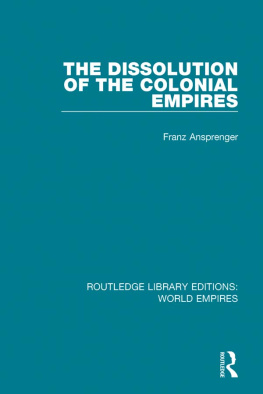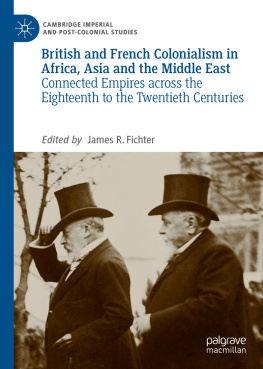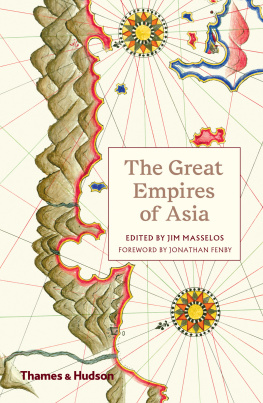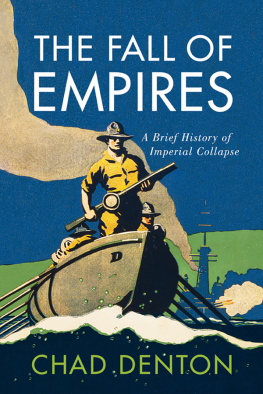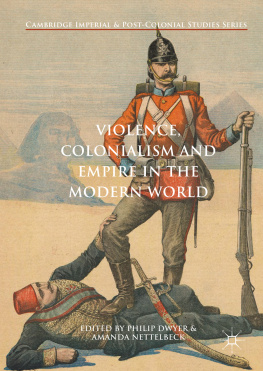The empires of the future would be the empires of the mind declared Churchill in 1943, envisaging universal empires living in peaceful harmony. Robert Gildea exposes instead the brutal realities of decolonisation and neo-colonialism which have shaped the postwar world. Even after the rush of French and British decolonisation in the 1960s the strings of economic and military power too often remained in the hands of the former colonial powers. The more empire appears to have declined and fallen, the more a fantasy of empire has been conjured up as a model for projecting power onto the world stage and legitimised colonialist intervention in Afghanistan, Iraq and Syria. This aggression, along with the imposition of colonial hierarchies in metropolitan society, has excluded, alienated and even radicalised immigrant populations. Meanwhile nostalgia for empire has bedevilled relations with Europe and played a large part in explaining Brexit.
Robert Gildea is Professor of Modern History at the University of Oxford. He has written extensively on French and European history in the nineteenth and twentieth centuries. Among the many awards his publications have garnered, Fighters in the Shadows: A New History of the French Resistance was longlisted for the Samuel Johnson prize and Marianne in Chains: In Search of the German Occupation won the Wolfson History Prize.
University Printing House, Cambridge CB 2 8 BS , United Kingdom
One Liberty Plaza, 20th Floor, New York, NY 10006, USA
477 Williamstown Road, Port Melbourne, VIC 3207, Australia
314321, 3rd Floor, Plot 3, Splendor Forum, Jasola District Centre, New Delhi 110025, India
79 Anson Road, #0604/06, Singapore 079906
Cambridge University Press is part of the University of Cambridge.
It furthers the Universitys mission by disseminating knowledge in the pursuit of education, learning, and research at the highest international levels of excellence.
www.cambridge.org
Information on this title: www.cambridge.org/9781107159587
DOI: 10.1017/9781316671702
Robert Gildea 2019
This publication is in copyright. Subject to statutory exception and to the provisions of relevant collective licensing agreements, no reproduction of any part may take place without the written permission of Cambridge University Press.
First published 2019
Printed in the United Kingdom by TJ International Ltd. Padstow Cornwall
A catalogue record for this publication is available from the British Library.
Library of Congress Cataloging-in-Publication Data
Names : Gildea, Robert, author.
Title : Empires of the mind : the colonial past and the politics of the present / Robert Gildea, University of Oxford.
Description : Cambridge, United Kingdom ; New York, NY, USA : Cambridge University Press, [2019] | Includes bibliographical references and index.
Identifiers : LCCN 201804277 | ISBN 9781107159587
Subjects : LCSH : Imperialism History. | Imperialism Social aspects. | Postcolonialism History. | Postcolonialism Social aspects. | International organization. | World politics 21st century.
Classification : LCC JC 359 . G 465 2019 | DDC 325/.32dc23
LC record available at https://lccn.loc.gov/2018042770
ISBN 978-1-107-15958-7 Hardback
Cambridge University Press has no responsibility for the persistence or accuracy of URLs for external or third-party internet websites referred to in this publication and does not guarantee that any content on such websites is, or will remain, accurate or appropriate.
Contents
Figures
Introduction
In February 2016, during the run-up to the British referendum on Europe, former Mayor of London
These two comments encapsulate a tension at the heart of thinking about empire. On the one hand it stands for prosperity and greatness on a vast geographical scale. It invites comparison with other empires, above all the Roman Empire. And it suggests that even if the British Empire is a thing of the past, its heirs claim entitlement still to act as a major force in international affairs. On the other, particularly when empire is called colonialism, a quite different narrative is conjured up. It is pilloried as a crime against humanity, a project that accumulated wealth and power by war, plunder, expropriation, torture and massacre. Empire was thus both a fantasy of glory and a chronicle of anguish. Taken together, however, the two comments suggest that the terms empire and colonialism have multiple resonances today. They refer to things that happened in the past but they also express ways in which the contemporary world has been constructed in terms of power, violence, money, inequality and exclusion.
Speaking before 6,000 uniformed What he meant by this was that future empires would not be armed titans at war with each other, but rather universal empires living in peace and harmony. The concept of empires of the mind is nevertheless a fluid one and has been taken as the title of this book in order to explore how empire has been imagined, mythologised and contested.
Empire was never a single thing. It was protean, taking many forms. It was improvised before it was ever thought of as a whole. It drove forward but was resisted and driven back. When it failed in one form or in one domain it did not withdraw but was reinvented, reconstructed in a different way. Such was the anguish of loss and the drive for power and prosperity that the lessons of defeat were rarely learned. Instead, there was a tendency to repeat what had gone before, in terms of practices or institutions, and thus to run the risk that defeat would follow once again.
Though empires were protean, they generally took one of three forms: empires of trade, colonies of settlement and territorial empires. Myths of empire held that intrepid sailors and bold investors forged new trade routes, that pioneering colonists cleared virgin territories and made them fertile, and that enlightened administrators followed them to ensure the benign rule of the mother country. The purpose of these myths was to make colonisation palatable to peoples at home concerned about the costs and risks of war, but they concealed the realities of empire. The most profitable trade in the eighteenth century was the slave trade, providing slave labour for the plantations of the Caribbean and American colonies. Trade was generally imposed on reluctant non-European empires or their vassals by force, sending in the gunboats where necessary and imposing unequal treaties which enshrined the privileges of the Europeans. Colonial settlement did not take place in virgin lands but entailed the displacement, often the massacre of indigenous populations, and subjection of the rest to segregation and exceptional laws. Imperial rule over large territories was authoritarian. While the colonies of white settlement from Canada to South Africa and Australia, and the French and European settlers of Algeria acquired substantial powers of self-government, and imperial rule was always happy to work with local princes and tribal rulers, the vast majority of indigenous peoples were systematically excluded from the prospect of exercising power and, if they laid claim to it, were brutally suppressed.
The phase of empire that lasted until the end of the nineteenth century has often been called informal empire or free trade imperialism based on gentlemanly capitalism. The race for empire between the great powers in the later nineteenth century obliged them to strengthen their grip on their possessions as they moved from informal empire, based on alliances with local rulers, to the formal empire of direct rule. Imperial rivalry was also a major factor in the outbreak of war in 1914, when European empires of Britain, France, Belgium, Germany, Italy and Russia were arguably at their height. Imperial powers claimed to be fighting for freedom and civilisation and colonised peoples, who were drafted by the hundreds of thousands into their armies, soon claimed the same from their colonial masters. They also appealed to new forms of legitimacy endorsed by the United States and the League of Nations that all nations were equal and had claims to self-government. After 1918 territories taken from the former Ottoman Empire in the Middle East or from the German Empire in Africa were divided up between the victorious powers as mandates, theoretically on a path to self-government. Few lessons, however, were learned by the imperial powers. Concessions made to colonial peoples were minimal and often withdrawn, and when those peoples resisted, in the mandates of Syria and Iraq just as much as in the colonies, they were forcibly put down.



